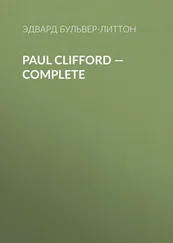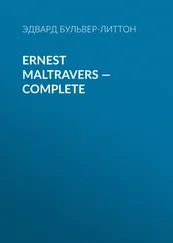Эдвард Бульвер-Литтон - A Strange Story — Complete
Здесь есть возможность читать онлайн «Эдвард Бульвер-Литтон - A Strange Story — Complete» — ознакомительный отрывок электронной книги совершенно бесплатно, а после прочтения отрывка купить полную версию. В некоторых случаях можно слушать аудио, скачать через торрент в формате fb2 и присутствует краткое содержание. Жанр: foreign_prose, literature_19, Европейская старинная литература, foreign_antique, на английском языке. Описание произведения, (предисловие) а так же отзывы посетителей доступны на портале библиотеки ЛибКат.
- Название:A Strange Story — Complete
- Автор:
- Жанр:
- Год:неизвестен
- ISBN:нет данных
- Рейтинг книги:3 / 5. Голосов: 1
-
Избранное:Добавить в избранное
- Отзывы:
-
Ваша оценка:
- 60
- 1
- 2
- 3
- 4
- 5
A Strange Story — Complete: краткое содержание, описание и аннотация
Предлагаем к чтению аннотацию, описание, краткое содержание или предисловие (зависит от того, что написал сам автор книги «A Strange Story — Complete»). Если вы не нашли необходимую информацию о книге — напишите в комментариях, мы постараемся отыскать её.
A Strange Story — Complete — читать онлайн ознакомительный отрывок
Ниже представлен текст книги, разбитый по страницам. Система сохранения места последней прочитанной страницы, позволяет с удобством читать онлайн бесплатно книгу «A Strange Story — Complete», без необходимости каждый раз заново искать на чём Вы остановились. Поставьте закладку, и сможете в любой момент перейти на страницу, на которой закончили чтение.
Интервал:
Закладка:
Of course, according to the most obvious principles of art, the narrator of a fiction must be as thoroughly in earnest as if he were the narrator of facts. One could not tell the most extravagant fairy-tale so as to rouse and sustain the attention of the most infantine listener, if the tale were told as if the taleteller did not believe in it. But when the reader lays down this “Strange Story,” perhaps he will detect, through all the haze of romance, the outlines of these images suggested to his reason: Firstly, the image of sensuous, soulless Nature, such as the Materialist had conceived it; secondly, the image of Intellect, obstinately separating all its inquiries from the belief in the spiritual essence and destiny of man, and incurring all kinds of perplexity and resorting to all kinds of visionary speculation before it settles at last into the simple faith which unites the philosopher and the infant; and thirdly, the image of the erring but pure-thoughted visionary, seeking over-much on this earth to separate soul from mind, till innocence itself is led astray by a phantom, and reason is lost in the space between earth and the stars. Whether in these pictures there be any truth worth the implying, every reader must judge for himself; and if he doubt or deny that there be any such truth, still, in the process of thought which the doubt or denial enforces, he may chance on a truth which it pleases himself to discover.
“Most of the Fables of AEsop,”—thus says Montaigne in his charming essay “Of Books” 7 7 Translation, 1776, Yol. ii. p. 103.
—“have several senses and meanings, of which the Mythologists choose some one that tallies with the fable. But for the most part ‘t is only what presents itself at the first view, and is superficial; there being others more lively, essential, and internal, into which they had not been able to penetrate; and”—adds Montaigne—“the case is the very same with me.”
CHAPTER I
In the year 18— I settled as a physician at one of the wealthiest of our great English towns, which I will designate by the initial L——. I was yet young, but I had acquired some reputation by a professional work, which is, I believe, still amongst the received authorities on the subject of which it treats. I had studied at Edinburgh and at Paris, and had borne away from both those illustrious schools of medicine whatever guarantees for future distinction the praise of professors may concede to the ambition of students. On becoming a member of the College of Physicians, I made a tour of the principal cities of Europe, taking letters of introduction to eminent medical men, and gathering from many theories and modes of treatment hints to enlarge the foundations of unprejudiced and comprehensive practice. I had resolved to fix my ultimate residence in London. But before this preparatory tour was completed, my resolve was changed by one of those unexpected events which determine the fate man in vain would work out for himself. In passing through the Tyro, on my way into the north of Italy, I found in a small inn, remote from medical attendance, an English traveller seized with acute inflammation of the lungs, and in a state of imminent danger. I devoted myself to him night and day; and, perhaps more through careful nursing than active remedies, I had the happiness to effect his complete recovery. The traveller proved to be Julius Faber, a physician of great distinction, contented to reside, where he was born, in the provincial city of L——, but whose reputation as a profound and original pathologist was widely spread, and whose writings had formed no unimportant part of my special studies. It was during a short holiday excursion, from which he was about to return with renovated vigour, that he had been thus stricken down. The patient so accidentally met with became the founder of my professional fortunes. He conceived a warm attachment for me,—perhaps the more affectionate because he was a childless bachelor, and the nephew who would succeed to his wealth evinced no desire to succeed to the toils by which the wealth had been acquired. Thus, having an heir for the one, he had long looked about for an heir to the other, and now resolved on finding that heir in me. So when we parted Dr. Faber made me promise to correspond with him regularly, and it was not long before he disclosed by letter the plans he had formed in my favour. He said that he was growing old; his practice was beyond his strength; he needed a partner; he was not disposed to put up to sale the health of patients whom he had learned to regard as his children: money was no object to him, but it was an object close at his heart that the humanity he had served, and the reputation he had acquired, should suffer no loss in his choice of a successor. In fine, he proposed that I should at once come to L—— as his partner, with the view of succeeding to his entire practice at the end of two years, when it was his intention to retire.
The opening into fortune thus afforded to me was one that rarely presents itself to a young man entering upon an overcrowded profession; and to an aspirant less allured by the desire of fortune than the hope of distinction, the fame of the physician who thus generously offered to me the inestimable benefits of his long experience and his cordial introduction was in itself an assurance that a metropolitan practice is not essential to a national renown.
I went, then, to L——, and before the two years of my partnership had expired, my success justified my kind friend’s selection, and far more than realized my own expectations. I was fortunate in effecting some notable cures in the earliest cases submitted to me, and it is everything in the career of a physician when good luck wins betimes for him that confidence which patients rarely accord except to lengthened experience. To the rapid facility with which my way was made, some circumstances apart from professional skill probably contributed. I was saved from the suspicion of a medical adventurer by the accidents of birth and fortune. I belonged to an ancient family (a branch of the once powerful border-clan of the Fenwicks) that had for many generations held a fair estate in the neighbourhood of Windermere. As an only son I had succeeded to that estate on attaining my majority, and had sold it to pay off the debts which had been made by my father, who had the costly tastes of an antiquary and collector. The residue on the sale insured me a modest independence apart from the profits of a profession; and as I had not been legally bound to defray my father’s debts, so I obtained that character for disinterestedness and integrity which always in England tends to propitiate the public to the successes achieved by industry or talent. Perhaps, too, any professional ability I might possess was the more readily conceded, because I had cultivated with assiduity the sciences and the scholarship which are collaterally connected with the study of medicine. Thus, in a word, I established a social position which came in aid of my professional repute, and silenced much of that envy which usually embitters and sometimes impedes success.
Dr. Faber retired at the end of the two years agreed upon. He went abroad; and being, though advanced in years, of a frame still robust, and habits of mind still inquiring and eager, he commenced a lengthened course of foreign travel, during which our correspondence, at first frequent, gradually languished, and finally died away.
I succeeded at once to the larger part of the practice which the labours of thirty years had secured to my predecessor. My chief rival was a Dr. Lloyd, a benevolent, fervid man, not without genius, if genius be present where judgment is absent; not without science, if that may be science which fails in precision,—one of those clever desultory men who, in adopting a profession, do not give up to it the whole force and heat of their minds. Men of that kind habitually accept a mechanical routine, because in the exercise of their ostensible calling their imaginative faculties are drawn away to pursuits more alluring. Therefore, in their proper vocation they are seldom bold or inventive,—out of it they are sometimes both to excess. And when they do take up a novelty in their own profession they cherish it with an obstinate tenacity, and an extravagant passion, unknown to those quiet philosophers who take up novelties every day, examine them with the sobriety of practised eyes, to lay down altogether, modify in part, or accept in whole, according as inductive experiment supports or destroys conjecture.
Читать дальшеИнтервал:
Закладка:
Похожие книги на «A Strange Story — Complete»
Представляем Вашему вниманию похожие книги на «A Strange Story — Complete» списком для выбора. Мы отобрали схожую по названию и смыслу литературу в надежде предоставить читателям больше вариантов отыскать новые, интересные, ещё непрочитанные произведения.
Обсуждение, отзывы о книге «A Strange Story — Complete» и просто собственные мнения читателей. Оставьте ваши комментарии, напишите, что Вы думаете о произведении, его смысле или главных героях. Укажите что конкретно понравилось, а что нет, и почему Вы так считаете.












